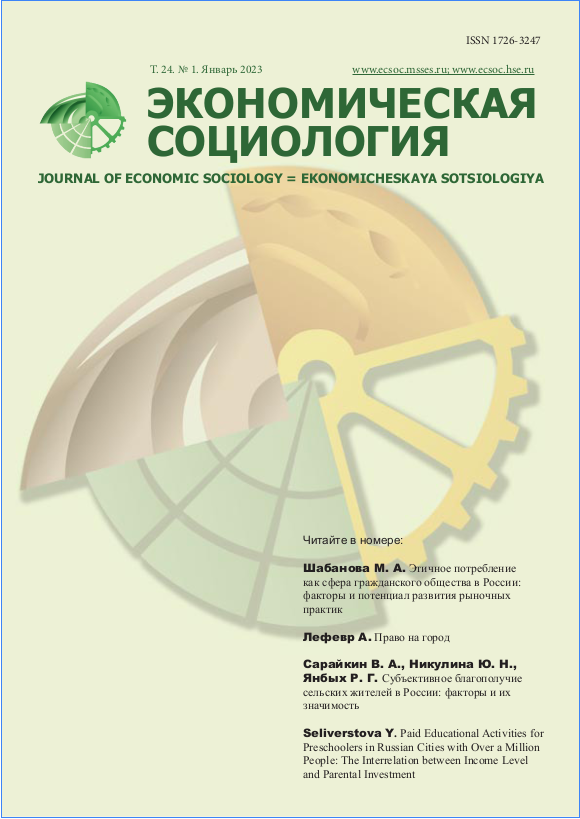Ethical Consumption as a Sphere of Russian Civil Society: Factors and the Development Potential of Market Practices
Abstract
The paper explores the concept of “voting for a better world with your wallet,” which refers to the idea of using consumer choices to effect change. The study conducts a synthesis and systematic review of existing scholarship on this topic and develops hypotheses promoting a holistic model of ethical consumer choice. The model takes into account consumer characteristics, product characteristics, and the environment, as well as two facets of ethical consumer identity: civic (concern for the common good) and consumer (focus on personal benefit). The study uses representative survey data from 2014, 2017, and November 2020, the year of the pandemic (N = 2000 in each case), to understand the dynamics and characteristics of different types of consumers who hold different positions on ethical purchasing (‘actual’, ‘potential’, and ‘indifferent’). Using regression analysis, we examine the relationship between specific factors and a consumer’s likelihood of of being included in various types of ethical consumers. Special attention has been paid to identifying a comparative role of proenvironmental (prosocial) and individualistic aspirations. We found that the concern for the common good has the strongest relationship with the likelihood of actually making ethical purchases, although the relationship with personal benefit is also significant. The engagement in ethical consumption practices is positively related to the diversity of Russians’ traditional prosocial activities outside of the consumption sphere. It has been shown, however, that by “voting with your wallet,” Russian civil society undergoes in-depth development, and also grows by attracting new participants as a result of easy access to practices. The number of ethical consumer is growing and their quality is changing, with the key change associated with the younger generation coming onto the scene. The paper substantiates the conclusion that the development of independent activity exercised by ethically-minded consumers signals the transformation of civil society, its tools, and spheres of influence. However, the realization of the consumer potential of citizens as agents of change is highly dependent on the available possibilities related to the activity of other stakeholders (businesses, NGOs, and authorities).













